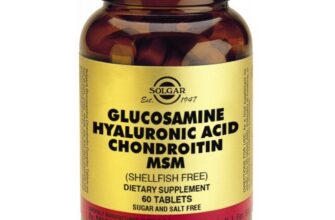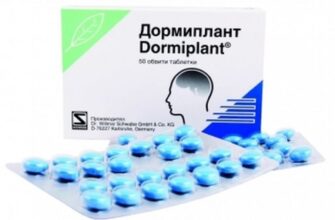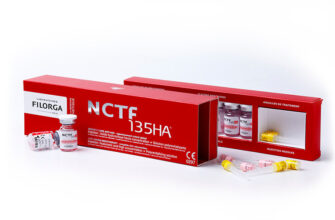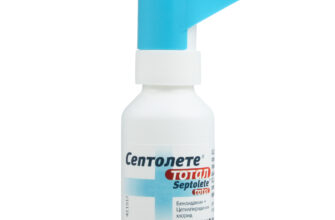Review of the best according to the editorial board. On the selection criteria. This material is subjective and does not constitute advertising and does not serve as a purchase guide. Before buying, you need to consult with a specialist.
We've already presented our readers with a ranking of sedatives, which includes both prescription and non-prescription drugs. But when it comes to antidepressants, we have to warn you: all these drugs are prescription drugs. Some of them require not just a piece of paper with a seal and a doctor's signature, but must be written out on a special form, and after purchase, the prescription remains in the pharmacy, where it is stored for three months. Therefore, it will not work to prescribe an antidepressant to yourself only on the basis of an article from the Internet (and, fortunately, we should note). To do this, you will have to visit a doctor – a neurologist or psychiatrist, who will write a prescription based on his own ideas about which remedy is most suitable for a particular patient. Therefore, the review of modern antidepressants is only for informational purposes and should in no way become a guide to self-medication.
- What are antidepressants and when are they prescribed?
- Antidepressant Precautions
- Overview of modern antidepressants
- Overview of 'neutral' antidepressants
- Sertraline
- Advantages
- disadvantages
- Venlafaxine
- Advantages
- disadvantages
- Escitalopram
- Advantages
- disadvantages
- Duloxetine
- Advantages
- disadvantages
- An overview of antidepressants with an 'invigorating' effect
- Fluoxetine
- Advantages
- disadvantages
- Paroxetine
- Advantages
- disadvantages
- An overview of 'sedative' antidepressants
- Fluvoxamine
- Advantages
- disadvantages
- Trazodone
- Advantages
- disadvantages
- Amitriptyline
- Advantages
- disadvantages
What are antidepressants and when are they prescribed?
The work of our brain, including the general background of mood and emotions, depends on the content of special substances in it – neurotransmitters. One of these substances, serotonin, is called the hormone of joy. It maintains a good mood and creates a feeling of happiness. Serotonin levels decrease in people with depression.
These are purely biochemical processes, and offering a person suffering from depression with low serotonin levels to 'just pull yourself together and start moving' is about as productive as asking a diabetic patient to maintain the desired sugar level by sheer willpower.
Antidepressants increase the amount of serotonin in the body, restoring the person's “normal” state.
By the way, they are prescribed not only to cheer up. Another common area of use for antidepressants is chronic pain (back pain, headaches, fibromyalgia, irritable bowel pain, etc.). Against the background of constant painful sensations, the synthesis of the body's own painkillers is disrupted; doctors call this dysfunction of the antinociceptive system. Antidepressants restore natural pain suppression mechanisms. And if for their main action – to improve mood – it takes 2-3 weeks, then the analgesic effect is manifested literally from 1-2 tablets.
Antidepressants are also recommended for anxiety disorders, premenstrual and premenopausal syndromes, urinary and fecal incontinence, and other pathologies.
Antidepressant Precautions
Modern drugs do not cause addiction, but in order for the body to adapt to biochemical changes, both start and stop taking them must be gradual. Usually, doctors recommend taking a quarter of the normal dosage in the first two days, then taking half a tablet for several days, and only then the full dose. The course must be completed in the reverse order.
When starting the use of drugs, it should be borne in mind that the desired effect does not occur earlier in two weeks, and the minimum duration of the course recommended by WHO is six months (except for situations when the drug is not prescribed for the treatment of depression). There are no breaks, so you need to schedule appointments in advance to update your prescription.
Since serotonin receptors are found not only in the brain (and most of them, oddly enough at first glance, in the intestines), the side effects of most antidepressants are quite similar:
- pain and discomfort in the abdomen,
- stool disorder
- dry mouth
- taste disturbances,
- shaking hands
- dilated pupil
- increased heart rate and increased blood pressure.
Other undesirable phenomena are also possible. Therefore, while taking the medicine, you need to monitor your condition and consult a doctor if you suspect any problems. Just in case, we recall: a long list of possible side effects does not mean at all that all of them will necessarily appear when taking the medicine.
Antidepressants cannot be combined with melatonin (available over-the-counter and very popular as an effective, safe, non-addictive sleeping pill); St. John's wort and medicines based on it; slimming agents based on sibutramine and dietary supplements based on 5-HTP (serotonin precursor). This can provoke an excessive increase in the level of serotonin in the body, the so-called serotonin crisis, which is extremely unpleasant in its manifestations and potentially life-threatening. You cannot combine them with a group of drugs called monoamine oxidase inhibitors, but since these drugs are also prescription drugs, doctors usually take into account possible drug interactions.
It is often said that because of antidepressants can trigger suicide attempts. Indeed, in the recommendations for specialists, it is explicitly forbidden to prescribe these funds to people who have expressed thoughts of suicide. But it also happens that soon after the start of the use of antidepressants, people who have not previously demonstrated such intentions attempt to commit suicide. The fact is that during severe depression, a person usually has no strength for anything – and a conscious attempt at suicide also requires strength. After you start taking the medicine, but before the necessary therapeutic effect appears (we remind you that this usually takes 2 – 4 weeks), strength and determination are added – but, alas, sometimes these forces and determination go to irreversible actions. Simply put, before using antidepressants, a person simply did not have the strength to get out of bed and out of the window, and after they started using them, they were found. Not every patient with suicidal intentions voices them to relatives or a doctor.
That is why many experts recommend combining antidepressant medication with psychotherapy or ask for follow-up visits to be able to assess the patient's condition. We repeat once again: antidepressants are very serious drugs, self-medication with which is unacceptable.
Offering our readers an overview of modern antidepressants, we should note that the division into 'invigorating', 'sedative' and 'neutral' used below is not an official classification, but an attempt to more or less clearly explain what to expect from certain pills.
Overview of modern antidepressants
| Nomination | a place | Name of product | price |
| Overview of 'neutral' antidepressants | 1 | Sertraline | 568 r |
| 2 | Venlafaxine | 348 r | |
| 3 | Escitalopram | 507 r | |
| 4 | Duloxetine | 641 RUB | |
| antidepressants with an 'invigorating' effect | 1 | Fluoxetine | 51 rbl. |
| 2 | Paroxetine | 322 r | |
| 'sedative' antidepressants | 1 | Fluvoxamine | 758 r |
| 2 | Trazodone | 754 RUB | |
| 3 | Amitriptyline | RUB 59 |
Overview of 'neutral' antidepressants
These funds have neither pronounced sedative nor active tonic effect. These antidepressants are considered safer because they do not grossly alter the 'tuning' of the nervous system by regulating the overall emotional background.
Sertraline
Popularity rating: 4.9
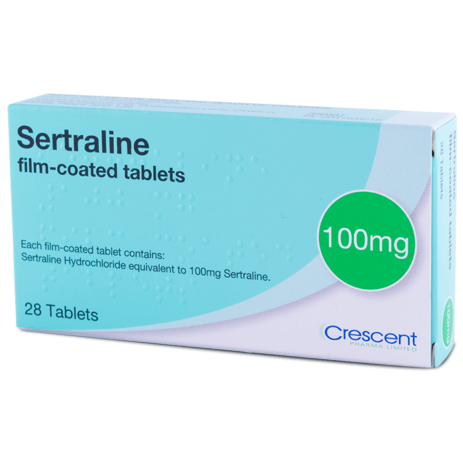
Trade names: Zoloft, Stipuloton, Serenata, Surlift, Asentra.
One of the safest antidepressants with a relatively fast (about a week) onset of action. Approved for use in children, during pregnancy – subject to an assessment of the ratio of possible risk and benefit. Not recommended for lactating, as it passes into breast milk.
The instructions do not indicate incompatibility with alcohol, however, this does not mean that you need to eat pills of vodka.
Despite the available generics, the average cost of a drug is relatively high: from 800 rubles per month of admission (as of early April 2019).
Advantages
- low probability of side effects,
- you can drive,
- can be taken by pregnant women and children.
disadvantages
- high price.
Venlafaxine
Popularity rating: 4.8
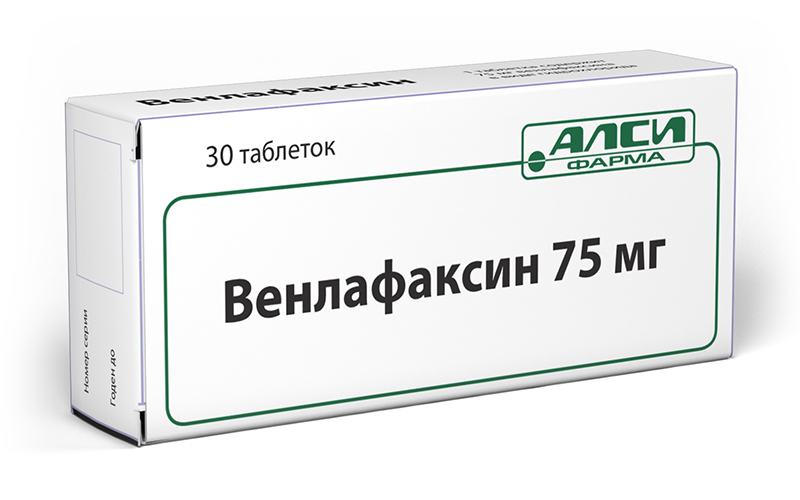
Trade names: Velaksin, Velafax, Venlaxor.
This antidepressant has long been well known in the world, and patent protection has already been withdrawn for it, which has been valid for 20 years since the registration of the molecule. But for our country, this drug is relatively new. It regulates not only the exchange of serotonin, but also norepinephrine and dopamine, which also affect the overall emotional status of the body.
It becomes effective pretty soon: by the end of the first week, but subject to a rapid (in 5 days) increase in dosage from the minimum – 75 mg per day – to the maximum daily dose of 375 mg. It has shown itself well in the treatment of resistant depressions (by the way, in about ⅓ of cases, the initially prescribed antidepressant is ineffective and the drug has to be changed). Improves attention, memory, normalizes sleep.
Side effects with venlafaxine are not uncommon: about 10% of all cases. On the other hand, they are safe for life: nausea, weight loss, unusual vivid dreams, sweating. May raise blood pressure. Adverse events are dose-dependent: if you reduce the dosage of the drug, the severity of side effects decreases.
With a sharp withdrawal of the drug, extremely unpleasant paresthesias appear – a feeling as if a current discharge is passing through the nerves.
Not approved for use by pregnant women and children under 18 years of age.
Advantages
- acts quickly on condition of rapid increase in dosage;
- adverse events are not life threatening,
- there are many generics, you can pick up inexpensive.
disadvantages
- not compatible with alcohol,
- discomfort when discontinuing the drug.
Escitalopram
Popularity rating: 4.7
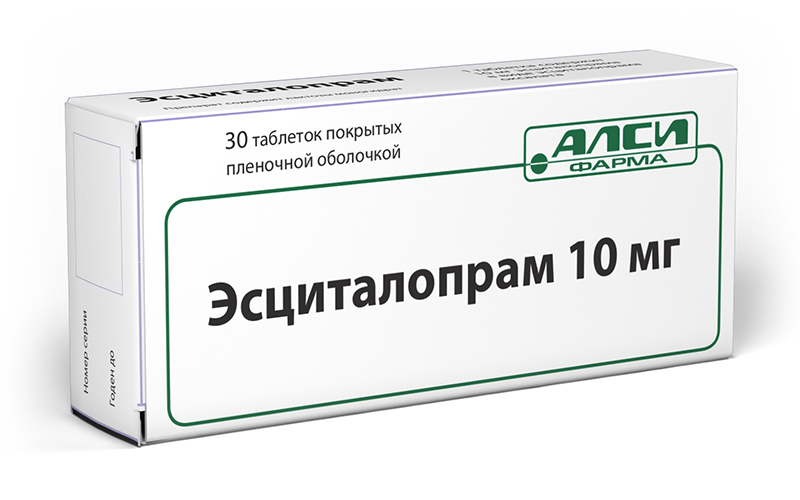
Trade names: Tsipralex, Selektra, Elitseya, Lenuxin.
Slightly 'softer' than Zoloft, it also rarely causes undesirable effects. Effective for anxiety disorders, panic attacks.
Some patients complain that escitalopram increases sugar cravings.
Not indicated for children under 18 years of age. During pregnancy, the instruction recommends assessing the ratio of risk and benefit, but according to post-marketing studies, newborns often required hospitalization and resuscitation due to respiratory disorders, vomiting, low blood pressure and other symptoms, possibly associated with a sharp cessation of the drug intake.
Does not enhance the effects of alcohol, however, it is not recommended to combine the use of an antidepressant with alcohol.
Does not reduce the reaction rate, so it can be taken by those who drive a car.
Advantages
- you can drive,
- you can pick up an inexpensive generic.
disadvantages
- can cause sugar cravings.
Duloxetine
Popularity rating: 4.6
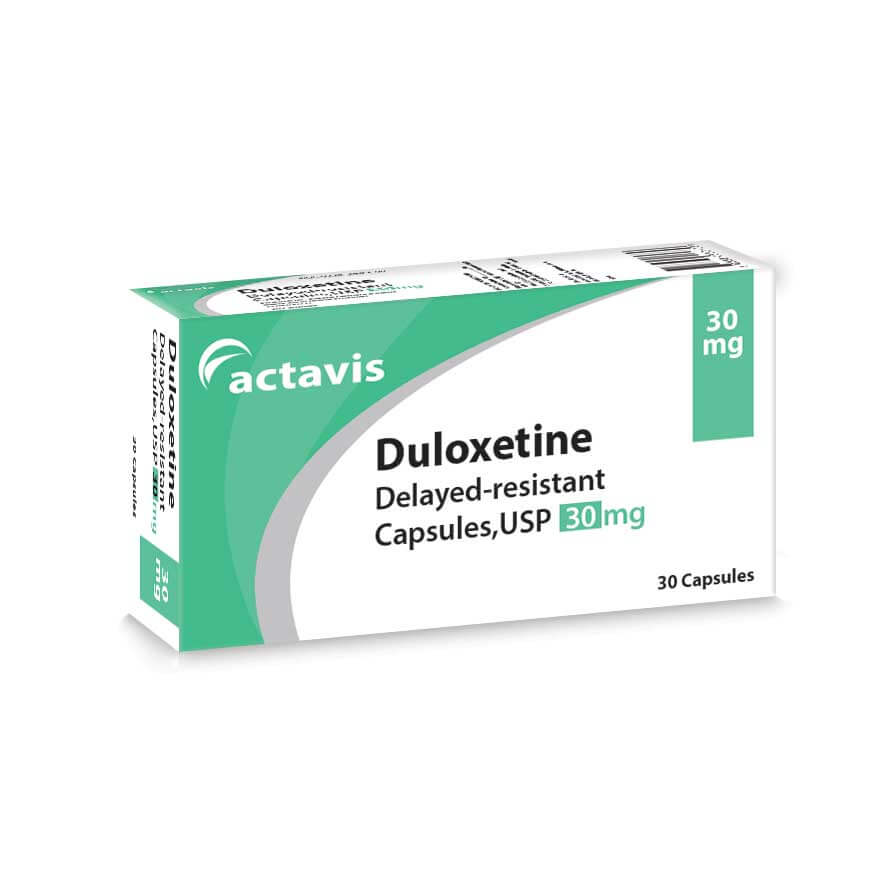
Trade names: Simbalta, Duloxenta.
In terms of effectiveness and safety, it is comparable to other antidepressants, but has a pronounced central analgesic effect. Therefore, it is especially recommended for long-term pain syndromes of neurogenic origin.
The drug slows down the reaction rate, therefore it is not indicated for drivers.
Not recommended for pregnant, lactating and children under 18 years of age due to the lack of safety data (it is obvious that no one will deliberately experiment with these categories of people).
Advantages
- effective for chronic pain.
disadvantages
- you cannot drive the car.
An overview of antidepressants with an 'invigorating' effect
Depression can manifest itself in many ways. Maybe – anxiety, nervousness, obsessive thoughts about how bad everything is. Then it is better to use 'sedative' antidepressants. But depression often leads to apathy: a state in which crawling out of bed and reaching the kitchen for breakfast becomes a real feat. It is precisely these patients who, in the literal sense, do not have the strength for anything, and who need 'invigorating' antidepressants.
Fluoxetine
Popularity rating: 4.5
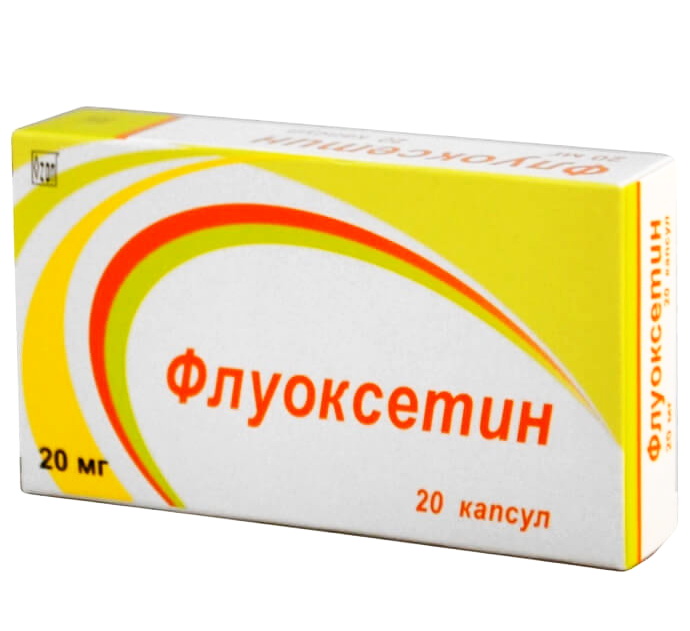
Trade names: Prozac, Profluzak, Deprex.
One of the first non-addictive antidepressants. For several decades of active use, it has demonstrated both strengths and weaknesses. It causes a burst of activity, improves mood. But if the selected dosage is too high, increased activity can turn into an inadequately elevated mood, psycho-emotional excitement, excessive thirst for activity, up to a complete loss of connection with reality. Hypomania or mania, agitation are common side effects.
Another side effect is loss of appetite (anorexia). Because of this, fluoxetine has been and remains popular among visitors to 'weight loss' publics and forums. As with elevated moods, the line between expected action and side effect is quite thin. It is because of these nuances that antidepressants (and not only fluoxetine) should be taken only under medical supervision.
Since the drug has been known for a long time, there are many generics (drugs with different trade names but the same active ingredient). Therefore, it is always possible to choose a drug within your means.
Fluoxetine is contraindicated in children under 18 years of age, pregnant and lactating.
Advantages
- causes a rush of activity,
- eliminates sleep problems,
- affordable price.
disadvantages
- not compatible with alcohol,
- may change the reaction rate, therefore it is not recommended for those who are driving.
Paroxetine
Popularity rating: 4.4
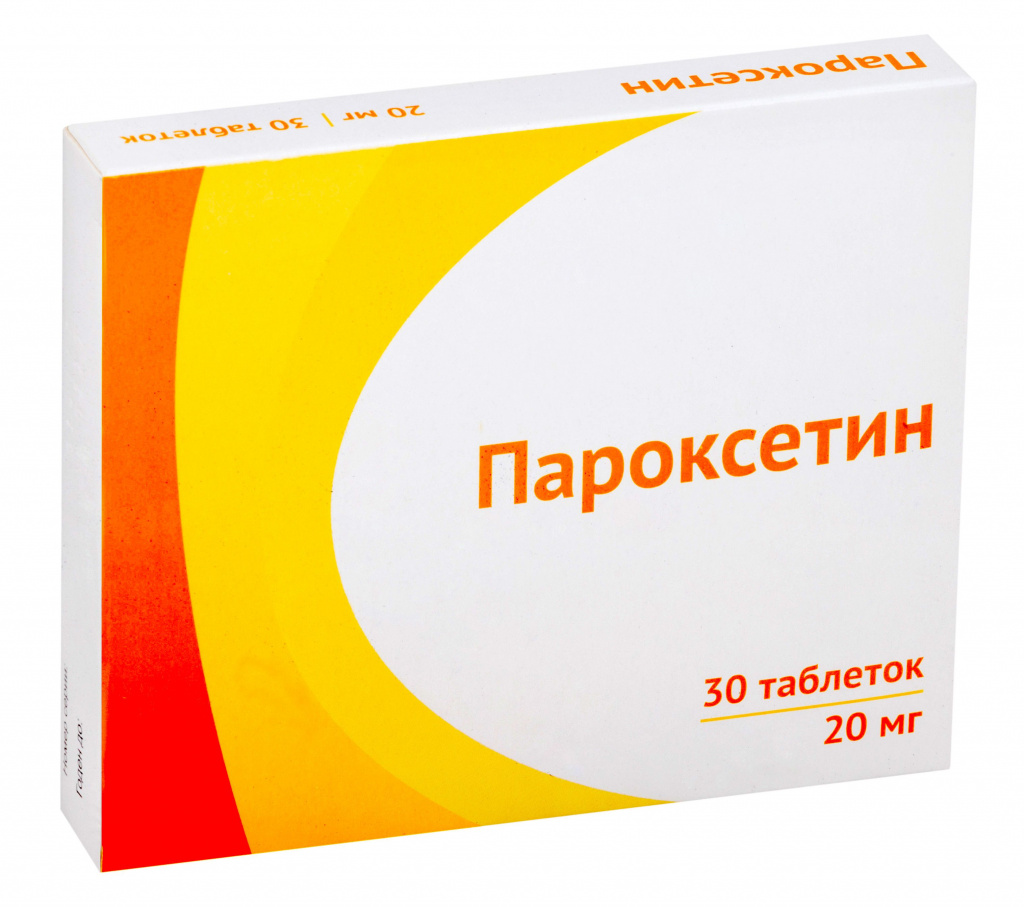
Trade names: Paxil, Reksetin, Adepress, Plizil.
It has not only a stimulating effect, but also a pronounced anti-anxiety effect. Especially recommended for patients with compulsive-obsessive disorders and panic attacks. It is more selective than fluoxetine, meaning it is less likely to cause side effects. On the other hand, the stimulating effect of paroxetine is less pronounced.
Like many antidepressants, it enhances the toxic effect of alcohol, so you should not drink alcohol during therapy.
The instructions for the use of the drug stipulate that it does not affect the speed of decision-making and intellectual functions, while manufacturers still recommend not to drive a car and not to work with mechanisms that require a quick response during therapy. It is difficult to say how much this reservation is a manifestation of the usual caution for a drug manufacturer. It is best to discuss this with the attending physician who can assess the condition of a particular patient and has experience with the use of the medicine, and, therefore, some statistics.
Do not use in pregnant women, lactating women, children (no safety studies).
Advantages
- more selective action.
disadvantages
- not compatible with alcohol.
An overview of 'sedative' antidepressants
These are antidepressants with a pronounced sedative effect. They are well suited for people with anxiety disorders, obsessive thoughts, sleep disorders.
Fluvoxamine
Popularity rating: 4.3
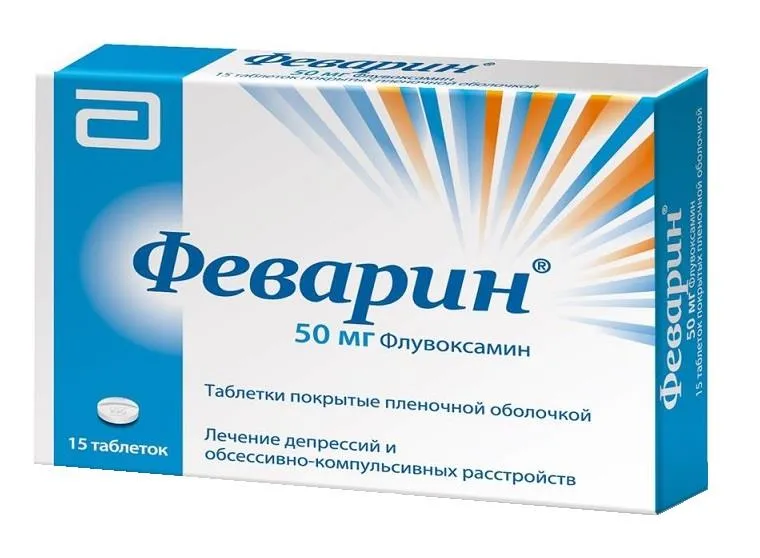
Trade name: Fevarin.
A modern drug that does not yet have generics. It perfectly restores sleep, which, however, can result in problems with waking up and sleepiness during the day. Approved for use in children, but only for the treatment of obsessive-compulsive disorders (obsessive-compulsive disorders). And in principle, judging by the reviews of doctors, it is more effective for the treatment of obsessive conditions than depression. Has also performed well in the treatment of PTSD.
Not recommended for pregnant and lactating women.
You can drive a car no earlier than 2 weeks from the start of taking the drug – when the absence of side effects in the form of drowsiness is obvious.
Due to the fact that this antidepressant does not have generics, it is not cheap: about 1,000 rubles for 15 tablets.
Advantages
- effective for obsessive compulsions.
disadvantages
- high price.
Trazodone
Popularity rating: 4.2
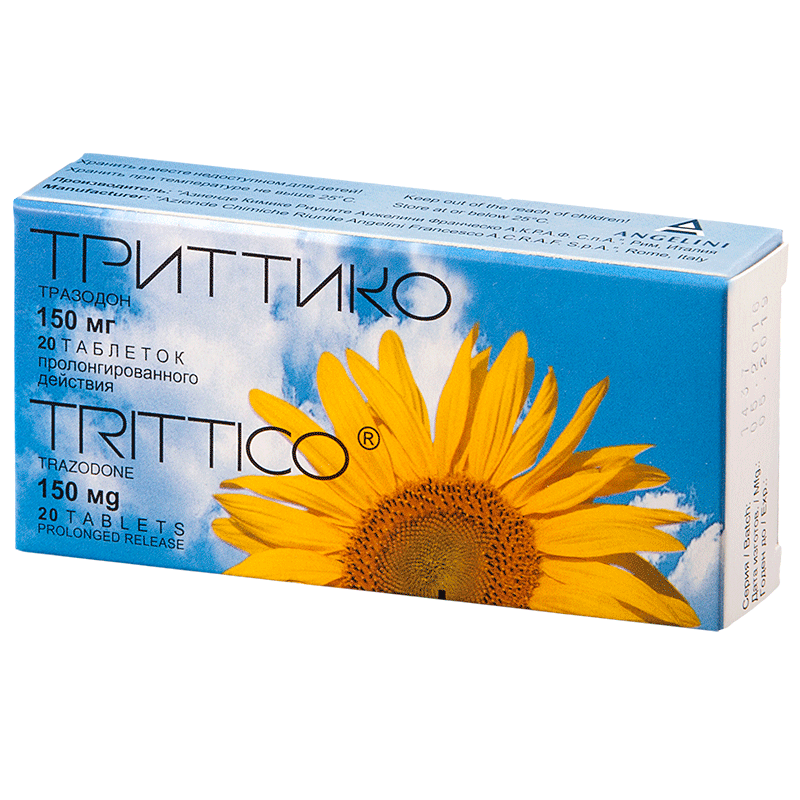
Trade name: Trittico.
Another relatively new antidepressant that has no generics yet.
It normalizes sleep well, reduces anxiety. Unlike most antidepressants, it does not decrease libido, but, on the contrary, enhances it.
Not recommended for children, pregnant women, lactating. It can cause drowsiness, so it is worth driving only after several weeks of use, when the absence of side effects is obvious.
Advantages
- does not cause a decrease in libido.
disadvantages
- high price.
Amitriptyline
Popularity rating: 4.1
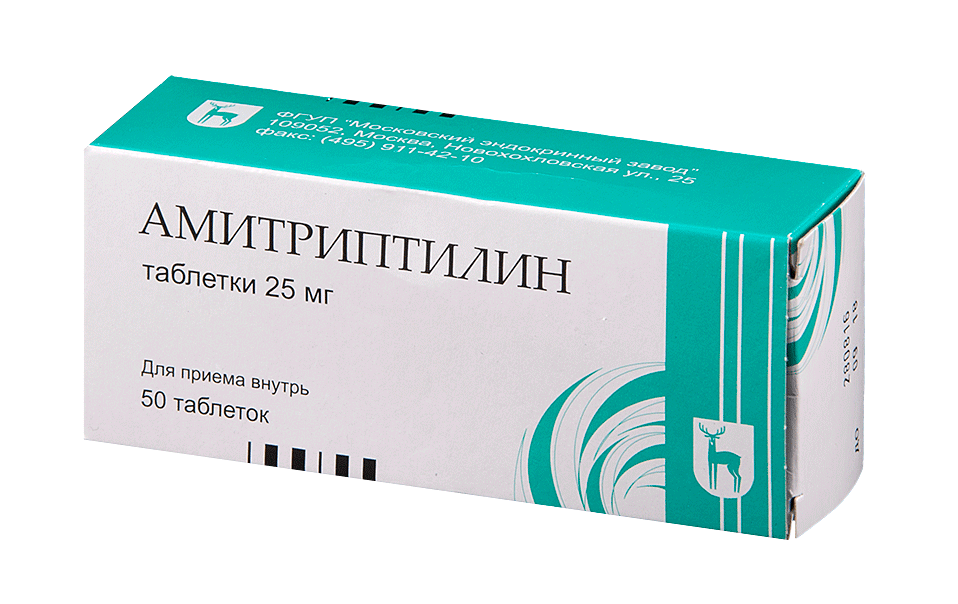
At first glance, this drug has absolutely nothing to do in the antidepressant review. First-generation drugs have many side effects, the mildest of which is constant drowsiness and addiction. But this is the only antidepressant that not only can, but also needs to be prescribed to people with suicidal tendencies. It is this state of 'knock down' that almost everyone who has taken amitriptyline complains about and will save the patient from an irreparable step. Most often, the drug is recommended in combination with other antidepressants and gradually canceled as the other drug begins to work effectively.
Advantages
- allowed for suicidal tendencies,
- effective for pain syndromes,
- cheap.
disadvantages
- addictive,
- a lot of side effects.
The popularity rating is based on the analysis of demand data from the wordstat.yandex.ru service.
Attention! This rating is subjective and does not constitute an advertisement and does not serve as a purchase guide. Before buying, you need to consult with a specialist.


